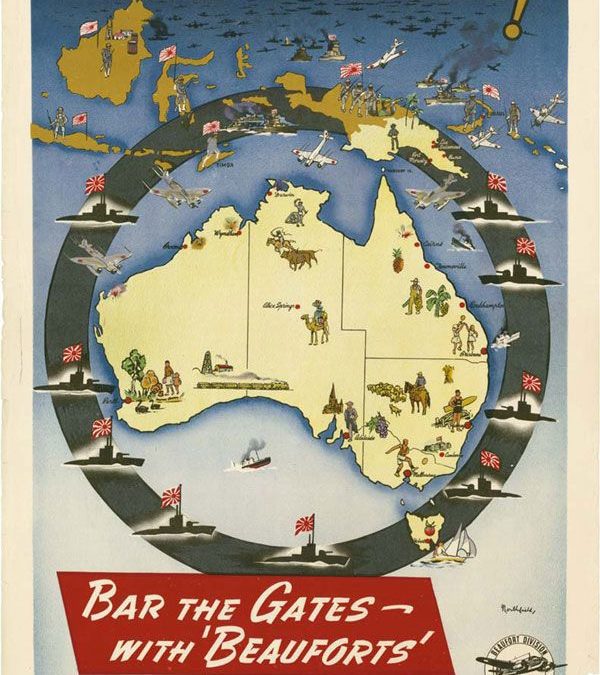Australia’s attempt to balance against China using nuclear submarines is not just a material decision. It’s one shaped by over a century of deep fear about Australia’s role as an outpost of whiteness in Asia.


Australia’s attempt to balance against China using nuclear submarines is not just a material decision. It’s one shaped by over a century of deep fear about Australia’s role as an outpost of whiteness in Asia.
Just as the international community appeared at long last to be taking a stronger stand against Russia, President Putin upped the ante. Unlike its annexation of Crimea, Russia is now in open warfare...
If only present day global competition were confined to the World Cup. But while eyes have turned back to a new crisis in Iraq—something I’m not exactly proud of predicting here—at least there has...
The following is a guest-post by my good friend Dave Kang of USC. Below he complements his recent TNI essay with the full flow of charts and graphics they screened out. This post is an important...
Building on PM's earlier post, "Cultural Weapons and International Relations" I'd like to look at an example that helps to illustrate the ways in which Realism misunderstands the role of culture in global politics. In his blog post titled, "China's War Against Harry Potter," Stephen Walt analyzes President Hu Jintao's attempt to defend Chinese culture by increasing its production of local culture. What is interesting is that Walt has plenty to say about culture, but he wants to separate cultural production from the state and to portray the state's attempt to manage culture as...
Phil Arena does it very effectively.Personally, I don't see how the claim that the US is not in decline follows logically from the observation of changes in Australian policy, Japanese policy, and Burmese policy. What is the logic behind assuming that the US would be less likely to push for all the changes highlighted by Mead if the US was not in relative decline? Is it not at least plausible that states try harder to assemble counter-balancing coalitions in the face of a rising threat?Read the rest.My quick take: There's simply no question that the US is in relative decline on at least some...
The term "Indo-Pacific" has been used since the mid-seventies, mainly to refer to a biological ecosystem. In the last few years, however, "Indo-Pacific" has come to describe a set of interrelated maritime security challenges from the East China Sea to the Arabian Sea -- particularly as India's Navy makes forays into the South China Sea and China seeks to protect its supply routes through the Indian Ocean. But the geopolitics brought into focus by this "45 degree tilt" of the map is not restricted to India and China; it also includes the US, Australia, Japan, and the rising powers of...
I remember once when I was exploring the Indian hill station of Shillong in Meghalaya, I read a random factoid in a guide book which said the town was geographically closer to Hanoi than Delhi. It was not actually very difficult to believe that in the remote states of Northeast India, the gravitational pull begins to shift towards Southeast Asia. I also knew that India's Nicobar Islands were less than 100 miles from the coast of Indonesia. Myanmar and Singapore were once part of British India. Etc., etc... Those random factoids make it seem that regional integration between India and some...
At about 13.10 GOP poll-leader Herman Cain reveals the shocking news that the People's Republic of China is seeking nuclear-weapons capability. Watch Monday, October 31, 2011 on PBS. See more from PBS NewsHour.Next interview: Cain discusses the threat posed by UK, French, and Russian nuclear proliferation. George Will swoons.
James Vreeland imagines the possibilities.
There has been no shortage of focus on America's budget stress and the apparent relative decline of American political and economic influence around the world amid the rise of China. But, as several folks have recently noted, China itself faces a set of significant challenges. I just returned from a week in China where I attended a working conference for a project on China in the World at Shanghai University of Finance and Economics. The conference looked broadly at China's rise with several scholars focusing on the internal challenges and contradictions of Chinese society and its economic...